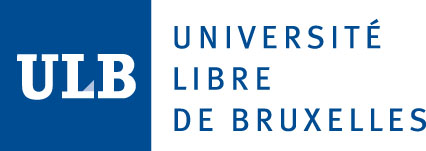Photos of the conference are available.
Tutorials
Towards a theory of search queries
Jan Van den Bussche (Hasselt University, Belgium)
Current information systems, such as file systems, library catalogues, websites, Semantic Web search, dataspaces, Google Fusion Tables, offer search capabilities that are typically weaker that the standard "first-order" SQL query capabilities expected of a fully-fledged database system. The theory of databases has explored first-order queries (relational algebra, relational calculus) extensively, but a theory of weaker, search-like query mechanisms is only at its beginnings. In this tutorial we present our first steps in this direction, based on an article we published with Fletcher, Van Gucht, and Vansummeren, in ACM TODS in 2010. We will begin by recalling some basics of the theory of database queries, so that everyone can follow the tutorial.
Jan Van den Bussche is a professor of databases and theoretical computer science at Hasselt University, Belgium. His research is on the theory of database systems, broadly construed, and he has recently published on topics as diverse as workflow provenance and DNA computing. He has been the recipient of two PODS best paper awards. He obtained his PhD from the University of Antwerp in 1993, under the supervision of Jan Paredaens. He has served as PC chair for the International Conference on Database Theory (ICDT) in 2001 and the ACM Symposium on Principles of Database Systems in 2006, and has served from 2001 until 2011 as chair of the ICDT council. He currently serves on the editorial boards of Information Systems, ACM Transactions on Database Theory, and Fundamenta Informaticae.
Patterns of Data Modeling
Michael Blaha (Modelsoft Consulting Corp, USA)

Data modeling is one of the most difficult tasks for software development. The difficulty lies with the need to reach beyond the literal problem by abstracting and capturing a problem’s essence. Patterns promote abstraction by illustrating the options and trade-offs in alternative data model representations. Most of the data patterns literature focuses on seed models. In contrast, this tutorial emphasizes true abstract patterns that are apart from a problem domain.
Since 1994 Michael Blaha has been a consultant and trainer in conceiving, architecting, modeling, designing, and tuning databases. He has worked with dozens of organizations throughout the world. Blaha received his doctorate from Washington University in St. Louis and is an alumnus of GE Global Research.
Uncertain Schema Matching
Avigdor Gal (Technion-Israel Institute of Technology)
Schema matching is the task of providing correspondences between concepts describing the meaning of data in various heterogeneous, distributed data sources. Schema matching is one of the basic operations required by the process of data and schema integration, and thus has a great effect on its outcomes, whether these involve targeted content delivery, view integration, database integration, query rewriting over heterogeneous sources, duplicate data elimination, or automatic streamlining of workflow activities that involve heterogeneous data sources.
Although schema matching research has been ongoing for over 25 years, only recently a realization has emerged that schema matchers are inherently uncertain. Since 2003, work on the uncertainty in schema matching has picked up, along with research on uncertainty in other areas of data management.
This tutorial presents various aspects of uncertainty in schema matching within a single unified framework. We introduce basic formulations of uncertainty and provide several alternative representations of schema matching uncertainty. Then, we cover two common methods that have been proposed to deal with uncertainty in schema matching, namely ensembles and top-K matchings, and analyze them in this context. We conclude with a set of real-world applications and in particular, the use of uncertain schema matching in NisB, a European project that is aimed at harnessing an evolving Wisdom of the Network to dynamically connect businesses to attain common business goals.
Avigdor Gal is an Associate professor at the Technion -- Israel Institute of Technology. He has published more than 95 papers in journals (e.g. Journal of the ACM (JACM), ACM Transactions on Database Systems (TODS), IEEE Transactions on Knowledge and Data Engineering (TKDE), ACM Transactions on Internet Technology (TOIT), and the VLDB Journal), books (Schema Matching and Mapping) and conferences (CIKM, ICDE, ER, CoopIS, BPM) on the topics of data integration, temporal databases, information systems architectures, and active databases. Avigdor Gal is the author of the book Uncertain schema Matching, part of Synthesis Lectures on Data Management (March 2011).




























